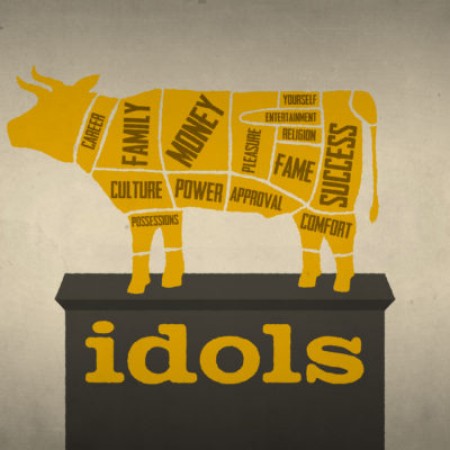 Moby-Dick, the 1851 classic adventure novel written by Herman Melville, is a story told from the first-person perspective of Ishmael, a sailor. At one point in the book, Ishmael is invited to worship a small idol honored by Queequeg, a pagan friend. The following paragraph records Ishmael’s acceptance of the invitation:
Moby-Dick, the 1851 classic adventure novel written by Herman Melville, is a story told from the first-person perspective of Ishmael, a sailor. At one point in the book, Ishmael is invited to worship a small idol honored by Queequeg, a pagan friend. The following paragraph records Ishmael’s acceptance of the invitation:
I was a good Christian; born and bred in the bosom of the infallible Presbyterian Church. How then could I unite with this wild idolator in worshipping his piece of wood? But what is worship? thought I. Do you suppose now, Ishmael, that the magnanimous God of heaven and earth—pagans and all included—can possibly be jealous of an insignificant bit of black wood? Impossible! […] So I kindled the shavings; helped prop up the innocent little idol; offered him burnt biscuit with Queequeg; salaamed before him twice or thrice; kissed his nose; and that done, we undressed and went to bed, at peace with our own consciences and all the world.
 An idolater may be “at peace” with his conscience, but his worship is an act of hostility to God. At Sinai the Lord commanded: “You shall not make for yourself a carved image, or any likeness of anything that is in heaven above, or that is in the earth beneath, or that is in the water under the earth. You shall not bow down to them or serve them, for I the LORD your God am a jealous God” (Exod. 20:4-5). But why is God Almighty jealous of what Melville’s Ishmael called “an insignificant bit of black wood”?
An idolater may be “at peace” with his conscience, but his worship is an act of hostility to God. At Sinai the Lord commanded: “You shall not make for yourself a carved image, or any likeness of anything that is in heaven above, or that is in the earth beneath, or that is in the water under the earth. You shall not bow down to them or serve them, for I the LORD your God am a jealous God” (Exod. 20:4-5). But why is God Almighty jealous of what Melville’s Ishmael called “an insignificant bit of black wood”?
Paul answers this question in his correspondence with the church in Corinth. “What do I imply then?” he asks. “That food offered to idols is anything, or that an idol is anything? No, I imply that what pagans sacrifice they offer to demons and not to God” (1 Cor. 10:19-20). An idol is nothing, but behind its fixed expression is the smirk of Satan and all his demonic cohorts. Nothing that usurps God’s rightful place in the human heart – whether it be wooden idol, paper money, or rubber ball – is truly innocent.

